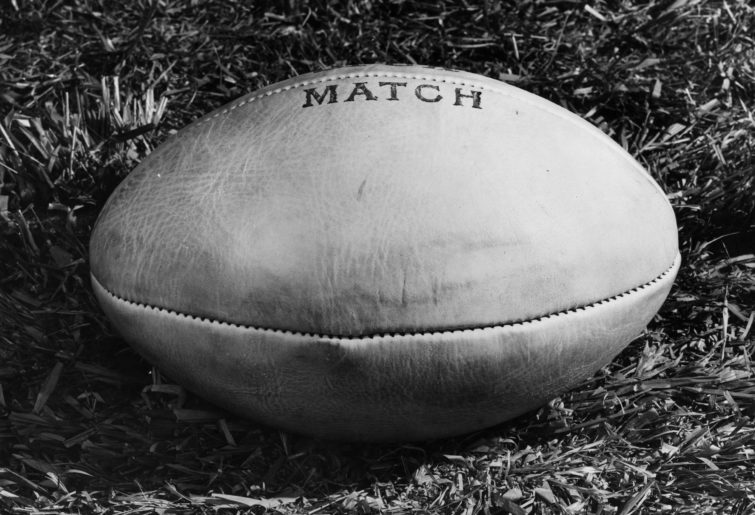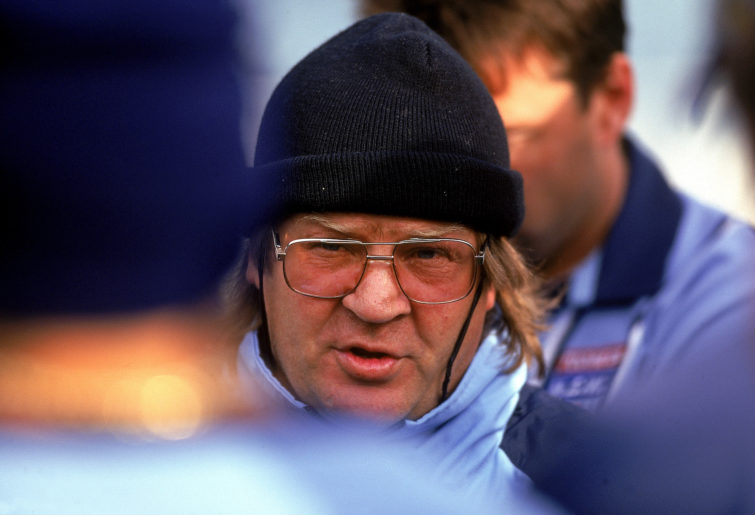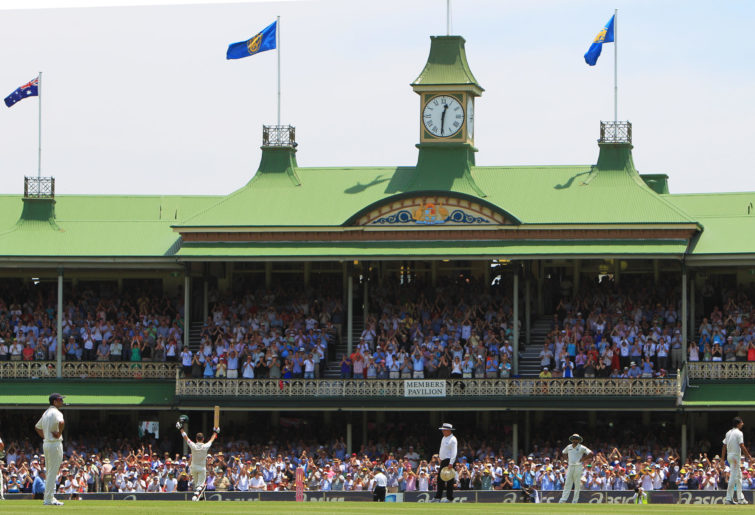NRL Round 7 judiciary: Roosters star duo charged
James Tedesco will be free for the next game of the Sydney Roosters' inconsistent NRL campaign after escaping suspension for tripping Ryan Papenhuyzen. The…
Opinion
I continue my series of naming the all-time teams to compete in a fantasy competition.
Today we have the Western Suburbs Magpies, known as Wests for short. They were a foundation club founded in 1908 winners. They were winners of four premierships and runners up eight times.
They left in 1999 but in those 81 years they had some impressive and iconic players, and now present as one half of the Wests Tigers.
Frank McMillan: nine games for Australia, 22 games for NSW
He was one of the best players from his generation who was the first fullback to pioneer the running fullback style who initiates attacking raids. He also had a sneaky kick in him that always kept defence on their heels. Although he wasn’t as good as Clive Churchill, many thought he was just below him, which was a true testament of his ability.

(Photo by Fox Photos/Getty Images)
Peter Dimond: ten games for Australia, four games for NSW
One of the best wingers in his time, he has the most tries in Magpies history. Dimond was unlucky as he made four grand finals but lost them all to the mighty St George Dragons. He was a very reliable winger who made his Test debut as a teenager.
Harry Wells: 33 games for Australia, 27 games for NSW
He formed one of the great centre pairings ever with Australia with Reg Gasnier. He was known to break the line and he was hard to bring down. He was great close to the line and was a constant threat to always to score. He was a bully for his day and age.
Cliff Pearce: seven games for Australia, 20 games for NSW
He played in the 1930 grand final win. Pearce was a one of early of stars the Magpies had. He was known for his toughness and scored a try in his Test debut out of position on the wing.
John Ribot: nine games for Australia, two games for NSW, ten games for Queensland
He was known as “the most hated man in rugby league” as he was the mastermind behind the Super League war. That may have washed over the fact he was a handy player in his own right who moved to the wing when he joined Wests. He used his size and pace to great advantage.
Tommy Raudonikis: 24 games for Australia, 29 games for NSW, Rothmans Medal winner
What more can be said about one of the most iconic players ever? A book can be written on all the stories in his career. He was the heart and soul of the Magpies. He was the most capped player in Wests history. Raudonikis was the definition of wearing your heart on your sleeve. He would start an all-in brawl just to fire up his teammates. Despite his size, he would take it to the forwards. However do not let this overshadow how much of a great player he was as he was able to throw passes to teammates.

(Photo by Sean Garnsworthy/Getty Images)
Keith Holman: 37 games for Australia, 28 games for NSW
Nothing was a truer representation of the phrase ‘it’s not about the size of the dog in the fight but the fight in the dog’. Holman used the fact he was overlooked because of his size to dominate his era. His dedication and the way he treated his body made him the fittest player in the league, which paved the way halfbacks should play the game.
John Donnelly: four games for Australia, three games for NSW
He was an integral member of Wests sides of the ’70s and ’80s. He was part of the most dominant packs under the tutelage of Roy Masters. He was nicknamed ‘Dallas’ for his large frame and larrikin persona, which granted him a cult following.
Noel Kelly: 25 games for Australia, eight games for Queensland, six games for NSW
The first forward to be named in three Kangaroos tours, he had the distinction of being sent off 17 times in his career. Kelly was named as hooker of the Team of the Century as he was a fiery competitor and skilful hooker.
Tedda Courtney: 11 games for Australia, nine games for NSW
He was a true pioneer. He participated in the All Golds while playing union and was one the rebels that later defected to league. A captain for Australia, Courtney spent 14 years and had the rare milestone of playing alongside his son Edward. He became Canterbury’s first ever coach in 1935.
Kelvin O’Shea: 20 games for Australia, eight games for NSW, eight games for Queensland
He was tall, long, and strong. He formed a deadly combination with Norm Provan for Australia. He was known for his rampaging runs with Provan suggesting he was the fastest second rower he has ever seen. He unfortunately never won a grand final. That was the missing piece in his career.
Arthur Clues: three games for Australia, seven games for NSW
He was one of the best exports Australia has ever produced. He was 183 centimetres and 96 kilograms. He was a giant for his era. He was known to do runs across the field and step his way through the defence. He played first-grade cricket as well, showing the athlete he was. He had the unique distinction of scoring a century and a try at the SCG.

(Steve Christo/Corbis via Getty Images)
Les Boyd: 17 games for Australia, eight games for NSW
He was an explosive runner who finally had his talent fully realised under Roy Masters. He was so powerful and aggressive and went over the edge too many times. He was famously suspended for 18 months for an eye gouge, which was a contrast to his softly spoken persona.
Bench: Vic Hey, Neville Charlton, Harvey Howard and Bill Carson
This team is a bunch of brawlers from the halves of Raudonikis and Holman to Boyd and Donnelly, who will love nothing more than belting their opposition into submission.
Clues and O’Shea form a damaging, ball-running back-row duo who can bust lines and create opportunities for the likes of Dimond and Ribot, who both provide threats on each flank.
McMillan would have thrived in his team. You can imagine the forwards will bash the opposition, leaving him space and time to pick on a retreating defence.
Throw in a dynamic Harry Wells and Wests have a team that can beat you with physicality or skill. But how will they fare against other all-time teams?
Well this concludes me naming all teams – 24 in total. It is a year later and I managed to do it.
Thanks for everyone reading and I appreciate all comments good or bad. The next article will be our first fantasy match-up.